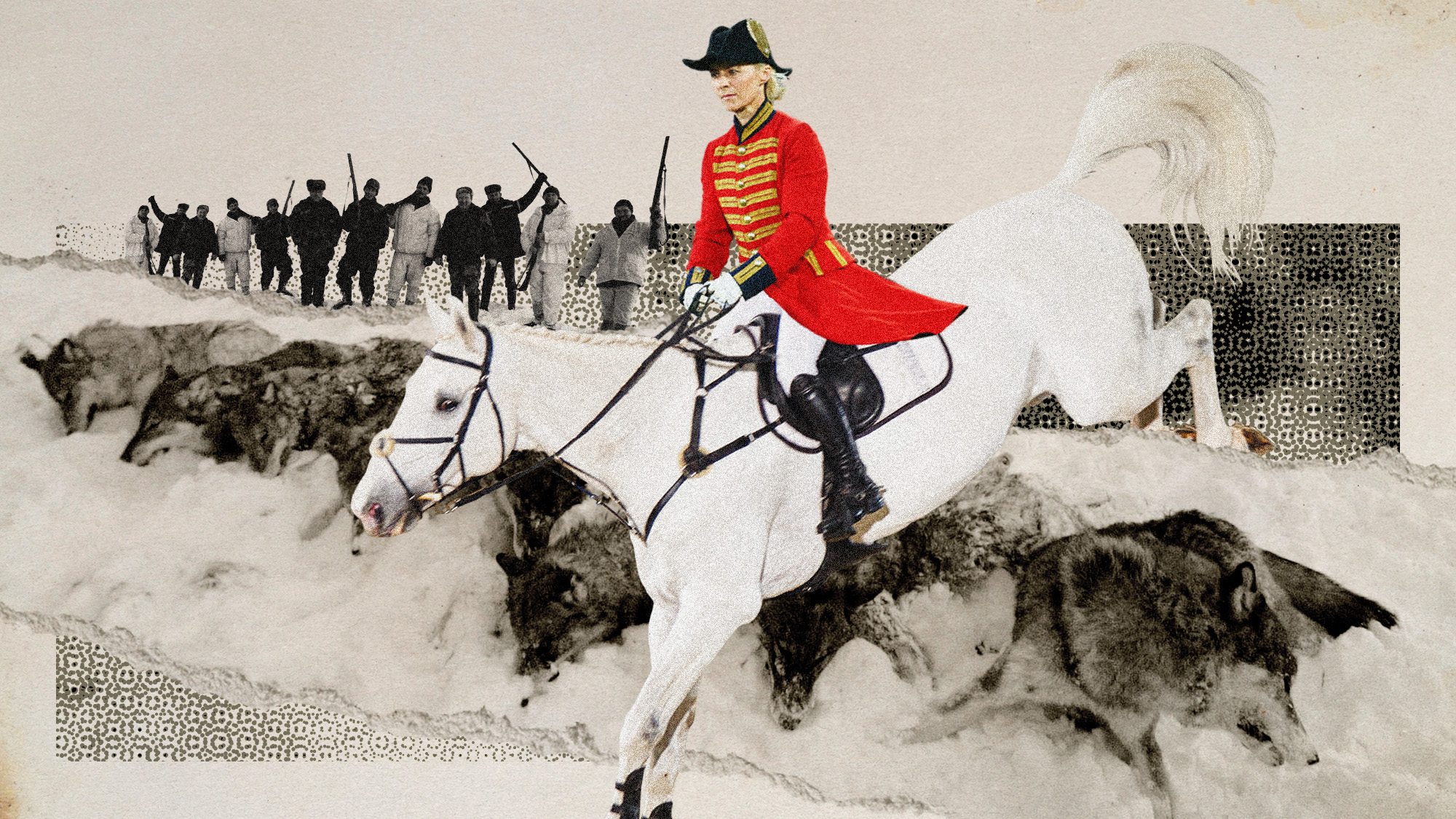Europe's growing wolf problem
Plans are underway to allow EU farmers to kill wolves but is the predator being unfairly attacked?

A free daily email with the biggest news stories of the day – and the best features from TheWeek.com
You are now subscribed
Your newsletter sign-up was successful
In 2022, a grey wolf in Germany's Lower Saxony region killed a pony called Dolly. It's not unknown for wolves to kill other animals but this one had messed with the wrong pony: Dolly was the beloved pet of Ursula von der Leyen, the president of the European Commission.
Dolly's death-by-wolf set in motion a chain of events that culminated in an historic vote in Strasbourg this week, which modified the protection status of wolves. It's seen as a "major win" for farmers who want "more freedom to shoot animals that threaten their livestock", said Politico.
Attacks on livestock and humans
In the wake of Dolly's death, von der Leyen campaigned for a rethink of the European Union's protected status policy on wolves. Many rural communities shared her anger at not being able to take action against the estimated 21,000 wolves running in packs across Europe, killing 40,000 sheep, goats and cattle every year, said The Times.
The Week
Escape your echo chamber. Get the facts behind the news, plus analysis from multiple perspectives.

Sign up for The Week's Free Newsletters
From our morning news briefing to a weekly Good News Newsletter, get the best of The Week delivered directly to your inbox.
From our morning news briefing to a weekly Good News Newsletter, get the best of The Week delivered directly to your inbox.
There have also been reports of attacks on humans. In November, a school student "was reportedly harassed by a wolf pack" in a Dutch national park, just months after a toddler had been attacked by a wolf in the same area.
As frustration grew over the past year, authorities in Sweden and German Bavaria took matters into their own hands and gave the green light for hunters to kill wolves "when livestock have been attacked", said Euronews.
At the Strasbourg meeting this week, members of the Bern Convention on the Conservation of European Wildlife and Natural Habitats voted to change the status of wolves from "strictly protected" to a "protected". This "clears the way" for the EU to "modify their own directive and make it easier" for member states to grant permission to kill wolves "deemed to pose a threat to farmers’ livestock", said Politico.
Von der Leyen said the vote represented "a balanced approach between the "preservation of wildlife and the protection of our livelihoods", and the European Hunters Federation said the vote was a "conservation success".
A free daily email with the biggest news stories of the day – and the best features from TheWeek.com
But not everyone is so happy. While Armenia, Georgia, Norway and Ukraine were among the countries supporting the change, the United Kingdom, Montenegro, Bosnia-Herzegovina and Monaco rejected it.
Wolves 'painted as villain'
The hugely successful return of the grey wolf in Europe has become a "polarising topic across the continent", said Euronews. In contrast to farmers' concerns, conservationists "hail" the "impact of wolves on the environment and ecosystems".
Large predators like the wolf are "one of our best allies to combat climate change, deforestation and biodiversity loss", Enrique Perez, the chairperson of the European Alliance for Wolf Conservation, told the outlet.
The wolf has been "painted as a villain without any scientific evidence", Sabien Leemans, a senior biodiversity policy officer at WWF Europe, told The Times. And the vote sends a "very bad signal" because the EU asks other nations to protect species like tigers, lions and elephants but "we ourselves cannot accept to live together with the wolves".
Arguing that the wolf is merely the "latest political pawn" of EU policymakers, advocacy organisation Eurogroup for Animals told Politico that downgrading the wolves' protection "will not solve the challenges of coexistence nor help farmers".
Conservationists maintain that, rather than seeking to kill wolves, farmers should use "electric fences, livestock guarding dogs and a human presence", said Euronews, but Niall Curley, a senior policy advisor at the EU farmers' association Copa-Cogeca, said those sorts of measures are "just not good enough".
Chas Newkey-Burden has been part of The Week Digital team for more than a decade and a journalist for 25 years, starting out on the irreverent football weekly 90 Minutes, before moving to lifestyle magazines Loaded and Attitude. He was a columnist for The Big Issue and landed a world exclusive with David Beckham that became the weekly magazine’s bestselling issue. He now writes regularly for The Guardian, The Telegraph, The Independent, Metro, FourFourTwo and the i new site. He is also the author of a number of non-fiction books.